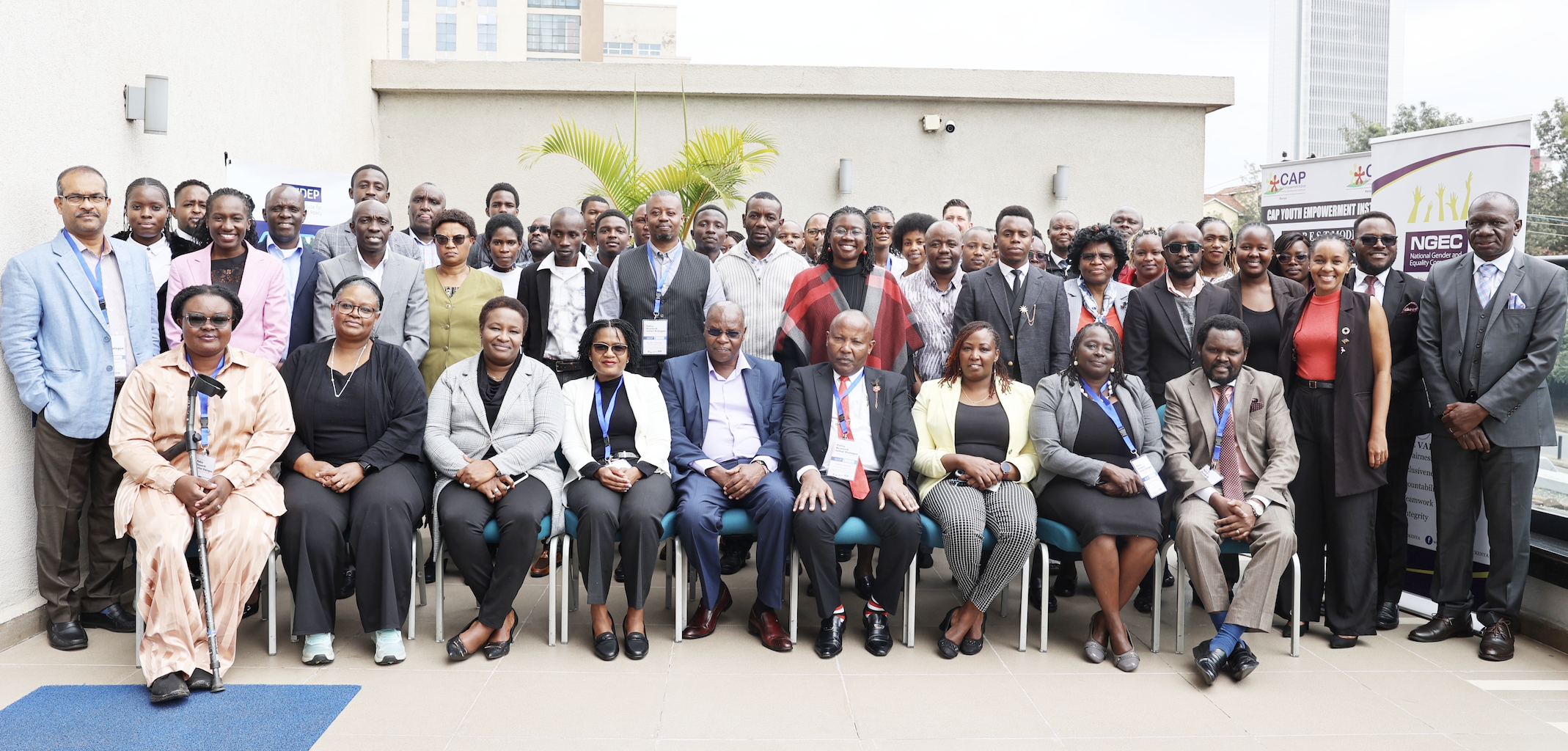Blogs

Kenya’s youth are full of possibility. They are bold, creative, and determined; reshaping what it means to work, lead, and live with purpose. From the buzzing energy of Nairobi’s innovation hubs to the quiet resilience of small-town entrepreneurs, they represent a new generation that is writing its own story.
And yet, that story is unfolding against the backdrop of uncertainty. For millions of young people, dignified and stable work remains out of reach. The question is not whether Kenya’s youth have potential; they do, in abundance; but whether society is doing enough to unlock it.
This question framed a powerful conversation at the Kenya Policy Dialogue on Youth Employment, convened in Nairobi by the African Institute for Development Policy (AFIDEP), in partnership with the CAP Youth Empowerment Institute (CAP-YEI), in August 2025.
It wasn’t your typical policy meeting. It was a space for honest reflection, a place where more that 100 government leaders, researchers, and young people spoke with refreshing candour about the present and the future of work in Kenya.
Time to rethink how Kenya prepares its youth for the world of work
“Kenya’s youth bulge can either be a blessing or a curse, depending on how we choose to act,” said Hon. Fikirini Jacobs, Kenya’s Principal Secretary for Youth Affairs, Creative Economy, and Sports.
His words captured a deep truth. Kenya’s demographics reveal both potential and urgency. More than 75% of Kenyans are under 35, and close to one million young people enter the job market each year. Yet only a small fraction secure formal employment, while the rest turn to informal work or unpaid family labour to survive.
The PS called for a bold rethinking of how Kenya prepares its youth for the world of work. “We’ve been churning out graduates faster than the economy can absorb them,” he noted, challenging everyone in the room to rethink how education connects to the job market.
Through programmes like the NYOTA Programme (which aims to reach 820,000 youth with training and seed capital) and the Recognition of Prior Learning (RPL) framework (which gives informal workers formal certification), the PS noted that the government is taking steps in the right direction. But, as the dialogue made clear, real transformation requires a mindset shift.
A call for evidence-informed and inclusive policies
In her remarks, Dr Rose Oronje, AFIDEP’s Deputy Executive Director, noted that good intentions are not enough. “We tend to put money where the data is,” she said, calling for evidence-informed policymaking that starts from young people’s lived realities.
It was a reminder that evidence isn’t just about numbers, it’s about listening. For instance, it’s about understanding why a trained plumber can’t get certification, why a young coder in Kisumu can’t find reliable internet, or why a skilled tailor in Kibra still works without social protection.
Her remarks were echoed by Mr Ndung’u Kahihu, Executive Director – CAPYEI who noted that if opportunities are not created, Kenya risks exporting both its jobs and its talent. For example, “last year, 2024, 400,000 jobs were shipped overseas”.
For AFIDEP and CAPYEI, the Youth Futures Policy Research Project is an opportunity to reimagine how evidence can drive real change. It’s about ensuring that youth voices don’t just echo in policy papers but shape the policies themselves.
What dignified work means in the changing world
Throughout the dialogue, one question echoed: what does “dignified work” really mean?
It’s more than a paycheck. In addition to the living wage, it is about fairness, social protection, respect, and opportunity, giving young people the space to grow, to learn, and to lead meaningful lives.
The informal sector, which employs most of Kenya’s youth, is often dismissed as temporary or unstructured. But it’s also where some of the country’s most innovative and resilient workers thrive. Participants in the event called for recognising and supporting this sector, through certification, financing, and mentorship. This would transform it into a true driver of prosperity.
And then there’s the digital and creative economy, a frontier of opportunity, but one that needs structure and safeguards. For Kenya’s youth, the future of work will transcend the ever-dynamic labour market, considering the digital penetration, technological advancements, global shocks, work flexibility and evolving policies.
The room buzzed with a shared belief that young people are builders and not burden.
One youth participant puts it best: “Stop treating us only as employees in waiting. We are innovators and entrepreneurs if given the chance”. That spirit captures the urgency of this moment.
Conclusion
The Kenya Policy Dialogue on Youth Employment reaffirmed that unlocking dignified and sustainable work for youth requires more than training programmes, it demands coordinated policy action, inclusive partnerships, and a mindset shift toward recognising the value of all forms of work, including those in the informal economy.
As AFIDEP and its partners advance the Youth Futures Policy Research Project, the insights from this dialogue will help guide evidence-informed solutions to ensure Kenya’s young people are not just employed but employed in meaningful work that is rewarding in all forms, sufficiently covered by the labour laws.

